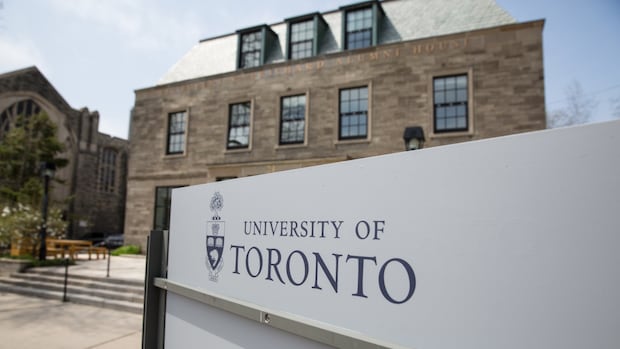A Yale University professor is leaving the U.S. and taking a position at the University of Toronto (U of T) due to what he says is a “far-right regime” under President Donald Trump.
“The United States is in the process of an autocratic takeover and it’s directed by a regime that I don’t think will want to leave power,” said Jason Stanley, a professor of philosophy.
“Its not just Donald Trump. It’s the machine behind Donald Trump.”
Stanley, whose books include How Fascism Works: The Politics of Us and Them, said he was considering joining U of T’s Munk School of Global Affairs and Public Policy for over a year. But he decided to move after Columbia University made sweeping changes to its policies last week under pressure from the U.S. government.
Earlier this month, the Trump administration cancelled $400 million US in research grants and other funding to Columbia over the university’s handling of protests against Israel’s military campaign in Gaza.
As a precondition to restoring those funds — along with billions more in future grants — federal officials demanded the university immediately enact nine separate reforms to its academic and security policies. In a response Friday, the university’s interim president Katrina Armstrong indicated Columbia would implement nearly all of them.
“Columbia’s complete and utter capitulation, really giving up to an autocratic regime, showed me that the universities are not going to stand together,” Stanley said.
Meanwhile, U of T has told Stanley they intend to make the Munk School “a world centre of democracy in these emergency times,” he said.
“It was just too obvious to me that I had to come.”
CBC Toronto has reached out to U of T for comment.
Reverse brain drain is possible: education expert
The Trump administration’s attacks on Columbia University is unprecedented in part because it is so ambiguous, said Jonathan Zimmerman, professor of the history of education at the University of Pennsylvania.
The public “[doesn’t] know any of the details” behind the government’s claim that Columbia is tolerating antisemitism on campus, said Zimmerman, who is a Columbia alum himself.
Among the university’s policy changes, he said the most concerning is the appointment of a senior provost to review several programs and departments covering the Middle East, including the Center of Palestine Studies and the Institute for Israel and Jewish Studies.
The appointment appeared to be a concession to the Trump administration’s most contentious demand: that the university place its Middle Eastern, South Asian and African Studies Department under “academic receivership for a minimum of five years.”
“The idea of the federal government reaching its hand down and using this enormous fiscal leverage to actually alter our academic practice, that is without precedent and that is deeply distressing,” Zimmerman said.
Zimmerman said he thinks Stanley won’t be alone in leaving the U.S. Historically, refugees fleeing Nazism and communism came to the U.S., where their academic contributions changed entire American fields of study, he said.
“That’s what people call the brain drain and historically it’s benefited [the U.S],” he said. “I do think there’s a real danger at this moment that the drain is going to start going in the opposite direction.”
Some Canadian universities have been hearing from interested academics based in America, said Gabriel Miller, president of Universities Canada, which represents all public universities in the country.
“They are getting calls from colleagues and counterparts in the United States, some of them very well known and accomplished researchers, who want to know that they’re going to be able to continue their work in an environment that’s supportive of science,” he said.
U of T can take place of American universities, prof says
On March 10, the U.S. Department of Education’s Office for Civil Rights sent 60 post-secondary schools letters, notifying them they are under investigation for antisemitic discrimination and harassment. The schools included Columbia and Yale.
The majority of these institutions did not speak up in support of Columbia in fear of facing similar government attacks, Zimmerman said. After Columbia submitted to Trump’s demands, however, he said some post-secondary institutions are very concerned.
“But my question is, where were you three weeks ago, when [Columbia] was being threatened with this fine?” Zimmerman said. “What you were doing, almost all of you, was sitting on your ass.”
After Columbia announced its policy changes, Stanley said he saw “administrator after administrator in universities, including regrettably [Yale], who said one of their main purposes was to lay low and not be noticed.”
He said he loves Yale and would not have considered leaving under any other circumstances. At this time, he added, U of T is the only university he would consider moving to.
“The University of Toronto is poised and ready to take the place of American universities under attack, to be a world leader,” he said.


